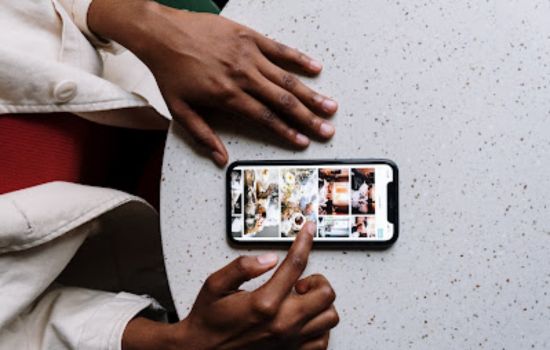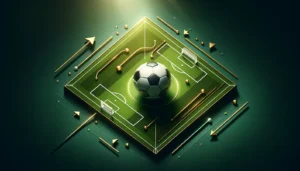Have you ever felt the world stop completely? You just checked your gallery after months without doing so. Between nostalgic laughs, you decide to clean up: old memes, unimportant screenshots, duplicate photos...
And then it happens. You select everything at once and tap undelete app.
But in that massive selection he was she. The photo you will never be able to take again.
See also
- Capture Unique Moments
- Get your health and money back
- Discover your fitness soundtrack
- Lessons in your Pocket
- Analyze and Improve Your Sleep
When Digital Becomes Painfully Real
It's not just a lost image.
How can something so intangible hurt so much physically?
The answer is that our devices have become extensions of our memory. Losing data feels like losing part of ourselves.
The Biggest Lie of the Smartphone Era
They have lied to you.
When your phone tells you that something is permanently deleted, it's exaggerating dramatically.
The reality is much more hopeful: your photo is still there, invisible but present, like a digital ghost waiting to be rediscovered.
Manufacturers don't want you to know this secret because they prefer to sell you more cloud storage.
The Science Behind the Digital Miracle
Imagine your phone memory as a gigantic library.
When you delete a file, the librarian does not burn the book. Simply remove the listing from the catalog and set the shelf as àavailable for new books.
The original book remains intact until someone needs that specific space.
Therein lies your window of opportunity.
The Modern Wizards of Recovery
Dumpster: The Silent Guardian
If there could be a digital guardian angel, it would be Dumpster.
This app works as one invisible safety net. Every time you delete something, Dumpster intercepts it before it disappears permanently.
You don't need to remember to activate it. It doesn't require complicated settings. It simply exists, silently protecting every impulsive decision you may have.
It's like having an extremely farsighted friend who always keeps copies of everything he finds just in case.
EaseUS MobiSaver: The Digital Archaeologist
Some call it magic, but it really is science applied with surgical precision.
MobiSaver isn't content with searching in obvious places. Dig into the deepest layers of your device, finding chunks of data you thought impossible to recover.
Its interface is deceptively simple for something so powerful. It's like having an ultra-sophisticated metal detector, but designed so your grandmother can use it.
DiskDigger Photo Recovery: The Obsessive Specialist
DiskDigger has a simple philosophy: ÎIf there was ever a photo on your device, I can find it in advance.
This app is the definitive one for desperate cases. Formatted SD cards, phones that have undergone factory resets, devices that other technicians declared 1st case lost.
Their search algorithm is relentless, systematic, almost obsessive in its dedication.
The Digital First Aid You Should Know
Golden Rule Number 1: Speed matters more than perfection.
Every photo you take after the accident reduces the chances of recovery. Every app you install, every video you download, every system update... everything competes for the same space where your lost memory lives.
Golden Rule Number 2: Only one tool at a time.
Desperation will make you want to try five apps simultaneously. Resist that temptation. Each recovery program you run may interfere with the others.
Myths That Are Sabotaging You
Myth 1: ÎFree apps don't work as well as paid apps Reality: Price does not determine the effectiveness of the recovery algorithm.
Myth 2: ÎIf it does not appear on the first scan, it is lost forever Reality: Different apps use different methods. What one cannot find, another could detect.
Myth 3: ÚiPhones are impossible to recover without jailbreak Reality: Modern technologies have found legitimate ways to access deleted data.
The Psychology of Digital Attachment
Why do we hold on so much to our photos?
They are not just pixels organized on a screen. They are temporary anchors, tangible proof that certain moments really occurred.
In a time where everything is constantly changing, our photographs become emotional constants. They are the physical evidence of our personal history.
Prevention Strategies That Work
The best recovery is the one you never need to do.
Method 3-2-1: Three copies of your important photos, on two different types of media, with one copy in an external location.
It sounds complicated, but with today's technology it's surprisingly simple:
- Copy 1: Your phone
- Copy 2: Automatic cloud backup
- Copy 3: External hard drive or computer
The Moment of Truth: When to Surrender?
Sometimes even the best technology finds its limits.
If you've tried multiple apps, waited long enough for deep scans, and followed all the protocols... it's okay to accept the loss.
Not all memories are meant to be digitally preserved. Some live better in our memory than on a screen.
Success Stories That Challenge the Impossible
There is a user on Reddit who recovered photos from his honeymoon three years later if you had accidentally deleted them.
A mother on Facebook shared how she rescued unique videos of her son's first steps after a complete phone format.
Recovery technology advances faster that our ability to lose hope.
Your Personal Emergency Protocol
When the disaster occurs (not if, but when):
Minute 1-5: Stop all activity on the device Minute 5-10: Download ONE recovery app Minute 10-60: Run the first basic scan Time 1-24: If necessary, try a deep scan After 24 hours: Consider career options or alternatives
Patience during this process is worth more than desperate haste.
The Future of Digital Recovery
Artificial intelligence is revolutionizing data recovery.
Soon we will have algorithms that not only find deleted files, but partially rebuild damaged photos using patterns learned from millions of similar images.
The boundary between the lost (I'll be lost and the recoverable (I'll be blurred every year.

Conclusion
In this fast-paced digital world, where everything seems ephemeral and fragile, there is a comforting truth: our digital memories are extraordinarily resilient.
Applications like Dumpster, EaseUS MobiSaver and DiskDigger Photo Recovery they are not just technical tools; are guardians of our personal history. They represent proof that technology, when used correctly, can be deeply human and empathetic.
Every photo recovered is a small victory against digital chaos. Every memory rescued from electronic oblivion is a reminder that our most precious moments deserve to fight for them.
The next time you face the accidental loss of something important, remember: in the digital realm, miracles happen every day.






